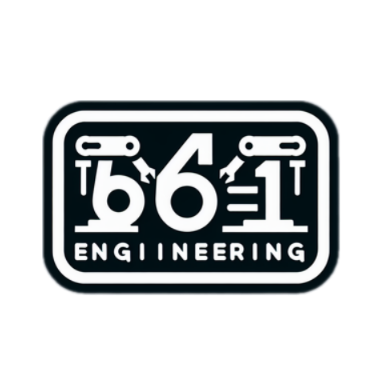Mechanical engineering is a diverse and dynamic field that plays a crucial role in the development and manufacturing of a wide range of products and systems. From designing cutting-edge machinery to overseeing complex manufacturing processes, mechanical engineers are integral to many industries. This article explores the various career paths available in mechanical engineering, focusing on the journey from design to manufacturing.
1. Introduction to Mechanical Engineering

Mechanical engineering is a branch of engineering that applies principles of physics, mathematics, and materials science to design, analyze, manufacture, and maintain mechanical systems. It is one of the broadest engineering disciplines, encompassing everything from automotive design to aerospace technology.
Core Areas of Mechanical Engineering
- Thermodynamics: The study of heat and energy transfer.
- Fluid Mechanics: The study of fluids and their interactions with forces.
- Materials Science: The study of material properties and their applications.
- Dynamics and Control Systems: The study of motion and control of mechanical systems.
2. Career Paths in Mechanical Engineering
Mechanical engineering offers a variety of career paths, each with its unique focus and opportunities. Here are some of the key career paths from design to manufacturing:
1. Product Design Engineer
Role and Responsibilities: Product design engineers are responsible for developing new products and improving existing ones. They work on the conceptualization, design, and prototyping of products, ensuring that they meet user needs, safety standards, and manufacturing feasibility.
- Key Tasks: Concept design, 3D modeling, prototyping, material selection, and user testing.
- Skills Required: Proficiency in CAD software (e.g., SolidWorks, AutoCAD), creativity, problem-solving, and knowledge of material properties.
Career Path: A product design engineer may start as a junior designer and advance to roles such as senior designer, lead engineer, or product development manager. Opportunities also exist in specialized areas like consumer electronics, medical devices, or automotive design.
2. Manufacturing Engineer
Role and Responsibilities: Manufacturing engineers focus on the processes and systems used to produce products. They work to optimize manufacturing methods, improve efficiency, and ensure quality control.
- Key Tasks: Process design, production planning, quality assurance, and equipment maintenance.
- Skills Required: Knowledge of manufacturing processes (e.g., machining, injection molding), problem-solving, and analytical skills.
Career Path: Manufacturing engineers can progress from roles such as process engineer or quality control engineer to positions like manufacturing manager or operations director. They may also move into specialized fields such as automation or lean manufacturing.
3. Mechanical Systems Engineer
Role and Responsibilities: Mechanical systems engineers design and manage complex systems involving mechanical components. They work on integrating various subsystems to ensure they function together effectively.
- Key Tasks: System design, integration, testing, and troubleshooting.
- Skills Required: Systems thinking, project management, and proficiency in simulation software.
Career Path: Mechanical systems engineers may advance to roles such as senior systems engineer, project manager, or systems architect. They may also work in sectors such as aerospace, automotive, or energy.
4. Research and Development (R&D) Engineer
Role and Responsibilities: R&D engineers focus on innovative research and development projects, exploring new technologies and materials to advance the field of mechanical engineering.
- Key Tasks: Conducting experiments, analyzing data, and developing new technologies or processes.
- Skills Required: Strong analytical skills, creativity, and expertise in experimental techniques.
Career Path: R&D engineers may start in research positions and advance to senior researcher, R&D manager, or even chief technology officer (CTO). They often work in industries like aerospace, defense, and advanced manufacturing.
5. HVAC Engineer
Role and Responsibilities: HVAC (Heating, Ventilation, and Air Conditioning) engineers design and maintain systems that control indoor climate and air quality.
- Key Tasks: System design, energy analysis, installation oversight, and maintenance.
- Skills Required: Knowledge of HVAC systems, energy efficiency, and building codes.
Career Path: HVAC engineers can advance to roles such as senior HVAC engineer, project manager, or facilities manager. Opportunities also exist in energy consulting and green building design.
3. Education and Skills Development
Educational Requirements
A career in mechanical engineering typically requires a bachelor’s degree in mechanical engineering or a related field. Advanced roles may require a master’s degree or higher. Specialized certifications or licensure may also be beneficial, such as becoming a Professional Engineer (PE).
- Bachelor’s Degree: Fundamental engineering principles, core mechanical subjects.
- Master’s Degree: Advanced topics, specialized areas of interest.
- Certifications: Professional Engineer (PE), Six Sigma, Project Management Professional (PMP).
Skills for Success
- Technical Skills: Proficiency in CAD software, understanding of manufacturing processes, and expertise in mechanical systems.
- Analytical Skills: Ability to solve complex problems and analyze data effectively.
- Communication Skills: Clear communication with team members, stakeholders, and clients.
- Project Management: Managing projects efficiently, including budgeting, scheduling, and resource allocation.
4. Industry Trends and Future Outlook

Emerging Technologies
- Automation and Robotics: Integration of robotics and automation in manufacturing processes is increasing efficiency and precision.
- Additive Manufacturing: 3D printing technology is revolutionizing prototyping and production, allowing for rapid iteration and customization.
- Sustainable Engineering: Focus on developing eco-friendly technologies and sustainable practices is growing, with an emphasis on reducing environmental impact.
Future Career Opportunities
- Growth Areas: Industries such as renewable energy, smart technologies, and advanced manufacturing are expected to offer numerous opportunities.
- Interdisciplinary Roles: Collaboration with other fields, such as software engineering and data science, is becoming more common, creating new career paths in mechanical engineering.
5. Conclusion
Mechanical engineering is a versatile and dynamic field with numerous career paths ranging from design to manufacturing. Whether working as a product design engineer, manufacturing engineer, mechanical systems engineer, R&D engineer, or HVAC engineer, professionals in this field contribute to the development of innovative technologies and systems that shape our world.
As technology advances and industries evolve, the opportunities for mechanical engineers will continue to expand. By staying informed about industry trends, continuously developing skills, and pursuing relevant certifications, mechanical engineers can navigate their careers effectively and make significant contributions to their fields.
For those considering a career in mechanical engineering, understanding the various paths and opportunities available is crucial for making informed decisions and achieving long-term success. With a solid educational foundation and a commitment to ongoing learning, mechanical engineers can thrive in this exciting and ever-evolving field.



